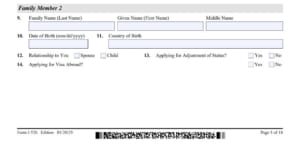Last week, U.S. Department of State – Bureau of Consular Affairs published the October Visa Bulletin. The EB-5 Regional Center category has been listed as “U” meaning unauthorized for issuance. This is because the Immigrant Investor Program (aka Regional Center Program) is set to expire on September 30, 2018.
The final action dates for the EB-5 regional center category has been listed as unavailable as a result of the upcoming “sunset date” of September 30, 2018 for the Immigrant Investor Program When there is legislative action reauthorizing the EB-5 Program all final action dates would immediately become “Current” for all countries except those countries with high demand.
The Immigrant Investor Program has been a temporary program since it was first enacted by Congress in 1993. Since 2015, it has been temporarily extended many times. While there is no guarantee that it will be extend this time, there is an expectation that it will continue to be extended and available for EB-5 investors choosing to invest in projects sponsored by regional centers.
October Visa Bulletin





